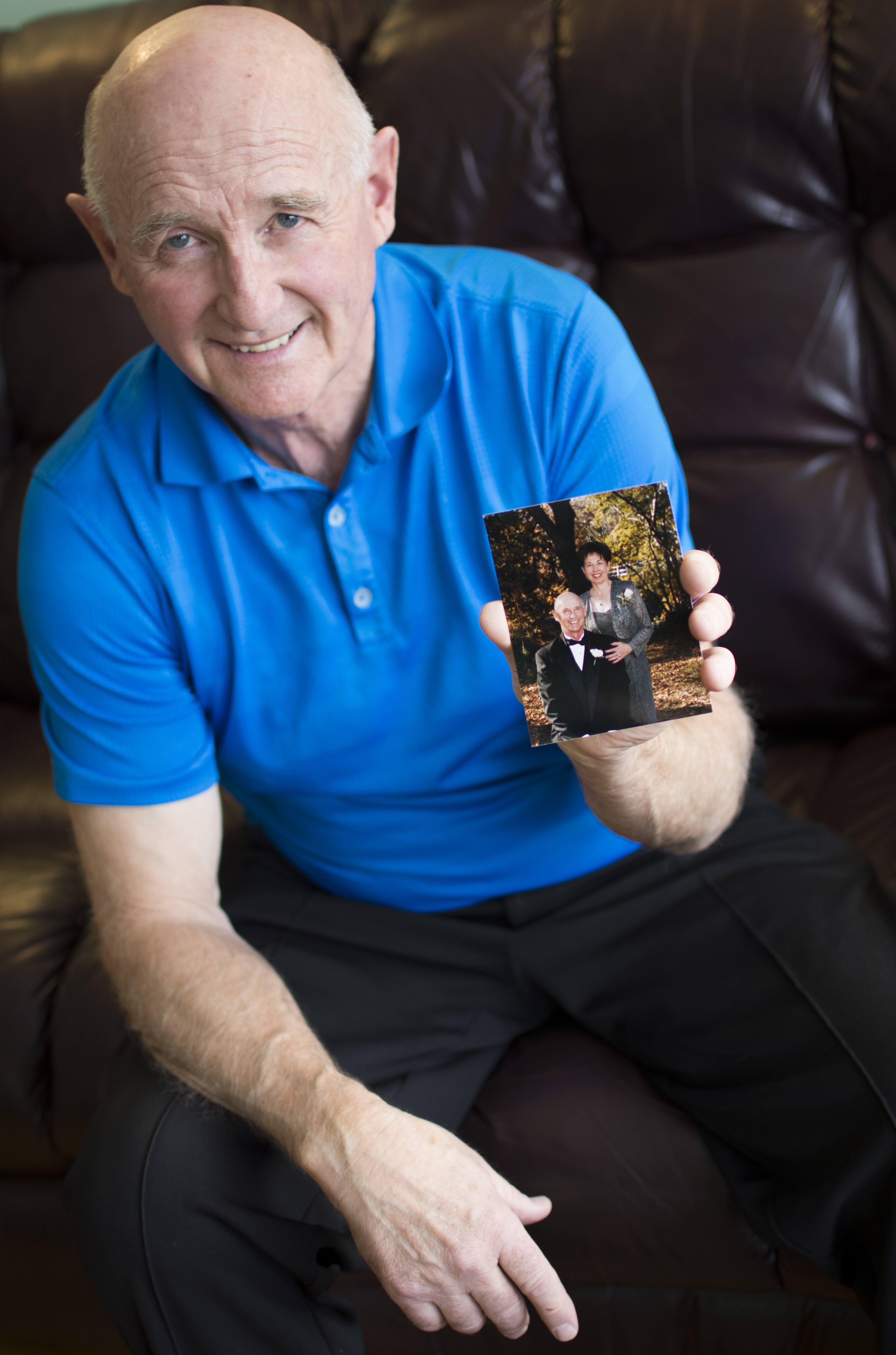City man Larry Quintilio wants to reach out to those who are dealing with an early onset of Alzheimer’s disease.
Quintilio’s wife June was diagnosed several years ago, and passed away last spring. She was only in her 60s – considerably younger than the age most believe are affected by Alzheimer’s disease. But June had been struggling with symptoms for many years prior to her death as well.
“She was hard to diagnose because she didn’t want to talk about it,” explains Larry, adding that June never really did acknowledge that she had Alzheimer’s disease.
But Larry recalls knowing by 2005 or 2006 that something was wrong. As mentioned, June was resistant to talking about the possibility, so actually nailing down a diagnosis took time. She passed away last June after spending three and a half years in the Centennial Centre in Ponoka. Larry’s growing concern over his wife’s symptoms prompted him to move his office to their basement for a year.
“After a year of being right here, I knew it was something serious.” Things like the loss of an ability to tell time, or understanding how a remote control worked fueled his concern.
“Probably the biggest thing was that she would pay the bills. Then she started coming to me, saying, ‘They’ve charged me twice for this’.” Larry would try to explain that it was in fact correct, but her confusion only worsened as time went on.
He later retired so he could care for June full-time.
These days, Larry has helped to spearhead Early Onset Dementia Alberta, a group committed to spreading the word that this disease affects younger people as well – people who are still, in some cases, paying mortgages or even raising families and have all kinds of financial responsibilities.
“These families that are affected lose an income, and sometimes they still have kids at home,” he explains of those the group is aiming to help. There is little in the way of financial support in these instances.
Sometimes, the spouse of someone suffering with Alzheimer’s not only has to scramble to pay the bills, but they also have to hire additional help to care for their loved one.
Much of the work he’s engaged in these days is about raising awareness. “It’s also a matter of getting to the government and saying, ‘We spend 19 per cent less in Alberta on long-term care beds than the rest of Canada. Why?’”
Other issues that must be explored include forms of home care, long-term care, diagnosis and medical support and just the overall lack of services and programming that is out there. As pointed out by the group, “Issues arise because the typical supports for dementia are based on the belief that patients (and their caregivers) are in their senior years, have adult children, are financially stable and have retired.”
Alzheimer’s disease is a progressive, degenerative disease of the brain, which causes thinking and memory to become seriously impaired. It is the most common form of dementia. This month marks Alzheimer Awareness Month.
Watching June’s struggle with the disease was acutely painful. Larry and June had always enjoyed a full and active life together. So coping with the changing behaviour and thinking patterns of a loved one with Alzheimer’s is continuously a challenge – it can also be heartbreaking and exhausting.
June was becoming increasingly confused, unsettled and fearful about her circumstances.
As Larry points out, caregivers have to go where the loved one is in his or her own mind, and try to see what their perspective on a given situation is. There is absolutely no point in trying to explain how something really is – it will likely only fuel their agitation and anxiety. “It’s better to be kind than right – if you insist, they resist. You never try to force them to do something.”
He recalls cooking with June and encouraging her to read the recipe while he put the ingredients together. Prior to that, June was becoming frustrated because she couldn’t always recall what she had already completed in terms of following the recipe. But by working together, she had the satisfaction of continuing to bake and cook knowing that her husband was by her side guiding the process along. “It put her back in control again.”
Resources and people ready to help are also available, and Larry said they can make a tremendous difference. He hopes that those just starting out in their own journey of dealing with Alzheimer’s reach out for assistance.
In the meantime, Larry says a strong, supportive network of family and friends is crucial to coping. He’s also interested in helping others who are facing similar circumstances. There’s no question his sensitivity and empathy would go far in helping others.
And that can be a struggle, because there is still a stigma in general regarding matters of the brain and mind, he said. And some people just flatly refuse to discuss it.
But for those who choose to be open, there is a community of folks willing to surround them with strength and support. Walking alongside someone with Alzheimer’s means there will be days when it feels like it’s almost too much to bear. And that’s why support groups are essential – you can share your feelings and experiences and know that there’s a built-in empathy already there, he said.
“It’s a tough, ugly experience,” said Larry. “But to me, it’s not something you should just put in a closet.”
For more information about Early Onset Dementia Alberta, call Larry Quintilio at 403- 346-8401. Visit www.alzheimer.ab.ca.
editor@reddeerexpress.com



